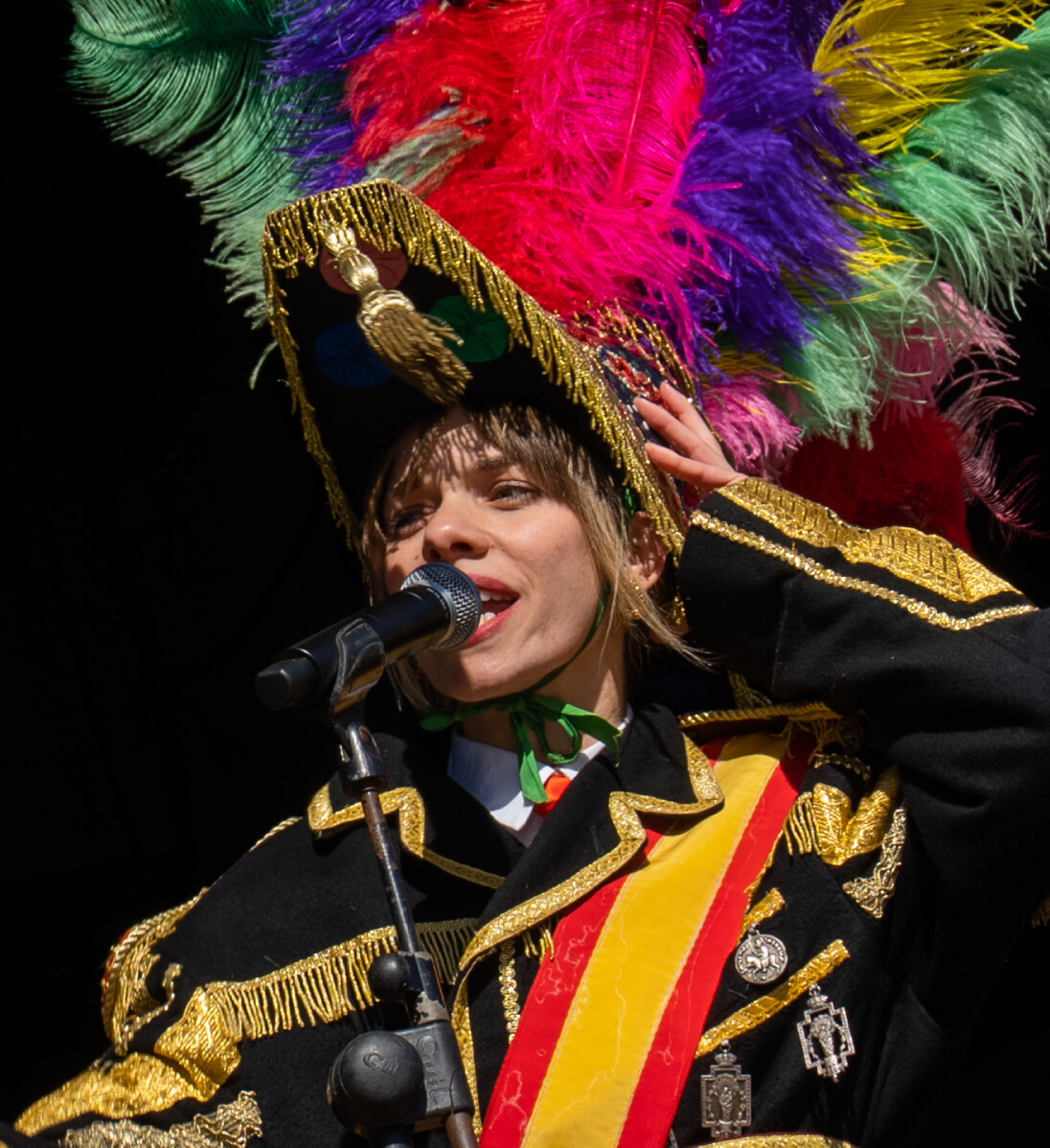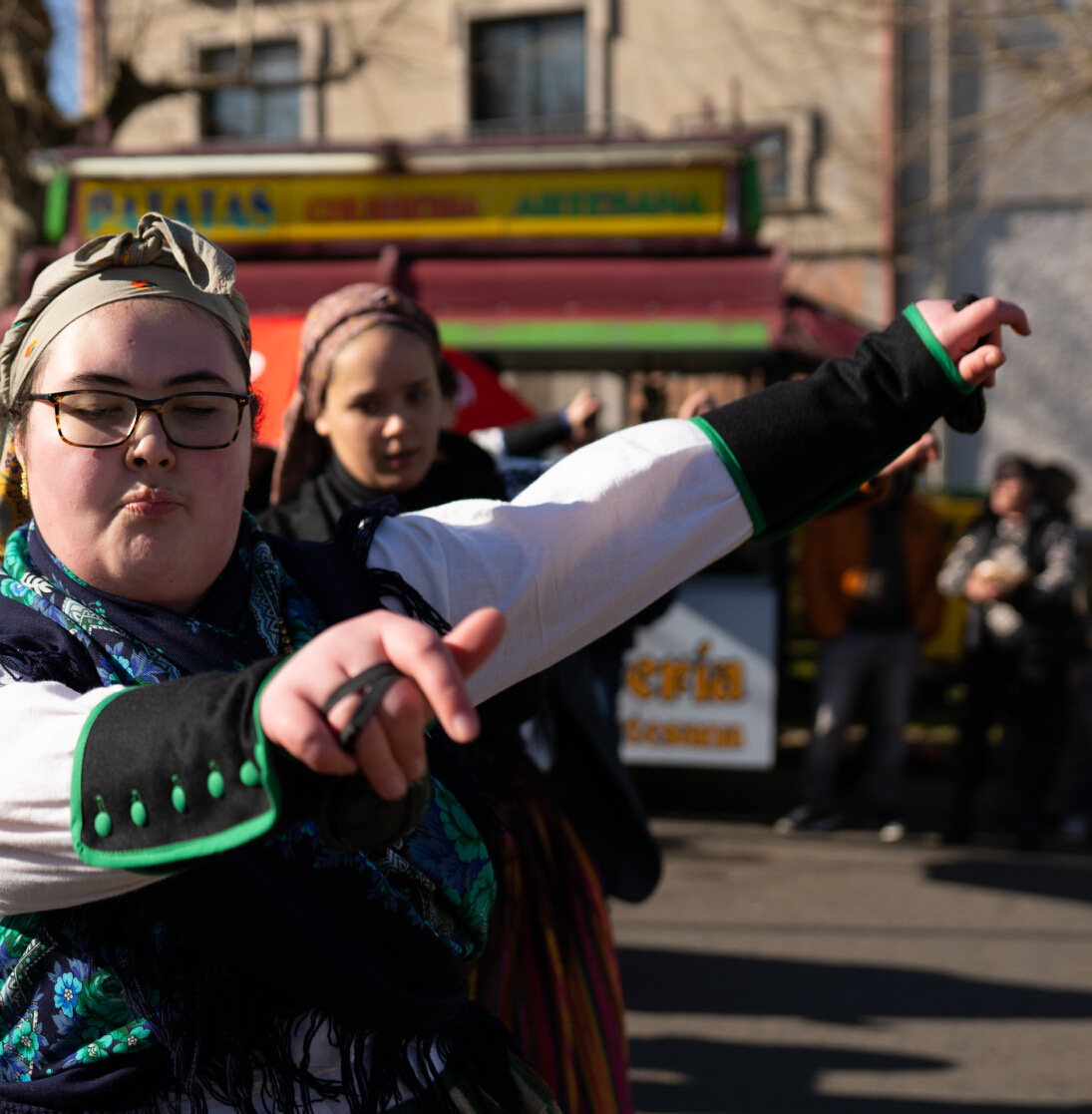CULTURAL ROOTS
CULTURAL ROOTS
One of the constant features of the Filloa de Lestedo Festival, apart from the tasting of this star dessert, is the incorporation of traditional values. Music, dancing, the Ulla Carnival, and other expressions of Galician culture still make up an important part of this event.
Due to these deep roots and the event’s importance within the region’s festival calendar, the Xunta de Galicia declared it to be Galician Festival of Tourist Interest in 2008. The next milestone achieved was the Declaration of a Festival of National Tourist Interest, which was granted by the Ministry of Industry and Tourism in 2024.
Ulla Carnival
The Traditional Rural Carnival of the Generals of the Ulla is one of the Ulla region’s most significant and singular cultural expressions. It has existed for more than a century (the first bibliographic references date from 1870), and its origin, according to the most popular theory, goes back to the Napoleonic battles that took place on the banks of the River Ulla; it runs through the 8 municipal districts in the provinces of A Coruña and Pontevedra involved in this event (Boqueixón, A Estrada, Santiago de Compostela, Silleda, Teo, Touro, Vedra, and Vila de Cruces).
This tradition stands out due to the generals’ singular attire and their dialectic battles, which are known as atranques. Characterised by genuine Galician irony, these so-called coplas usually satirise political, social, and cultural affairs, or topical subjects in the parish itself. The verses are mainly created by the locals that participate in the Ulla Carnival.
Year after year, the Filloa de Lestedo Festival is committed to promoting the Ulla Carnival, which is highly featured. Special attention is given to the Generals of the Ulla Parade, with the participation of more than 50 horse riders from different municipal districts in the Ulla region, accompanied by their dispatch riders and parrandas (groups of persons in fancy dress that act as a choir).
Preserving and promoting this tradition also helps to pass this part of traditional culture down to the next generation. The Ulla Carnival is therefore a valuable ethnographic element for the Galician people.

Folklore

Closely linked to the autonomous region’s celebrations, folklore is an essential part of traditional Galician culture. Therefore, since the first edition of the Filloa de Lestedo Festival down to the present, traditional folk groups have also had their own space.
The sounds and dances of traditional folk groups, bands, bagpipers, brass bands, Galician dance groups… dominate the atmosphere of the Filloa de Lestedo Festival. They start to perform in the early morning and continue until late evening. They are therefore a constant presence throughout the main day of the festival.
In recent years, the Filloa de Lestedo Festival has also been committed to incorporating other traditional instruments with deep roots in the Ulla region. So-called requinteiros (flute players) make a name as well in Boqueixon’s most important gastronomic event.


